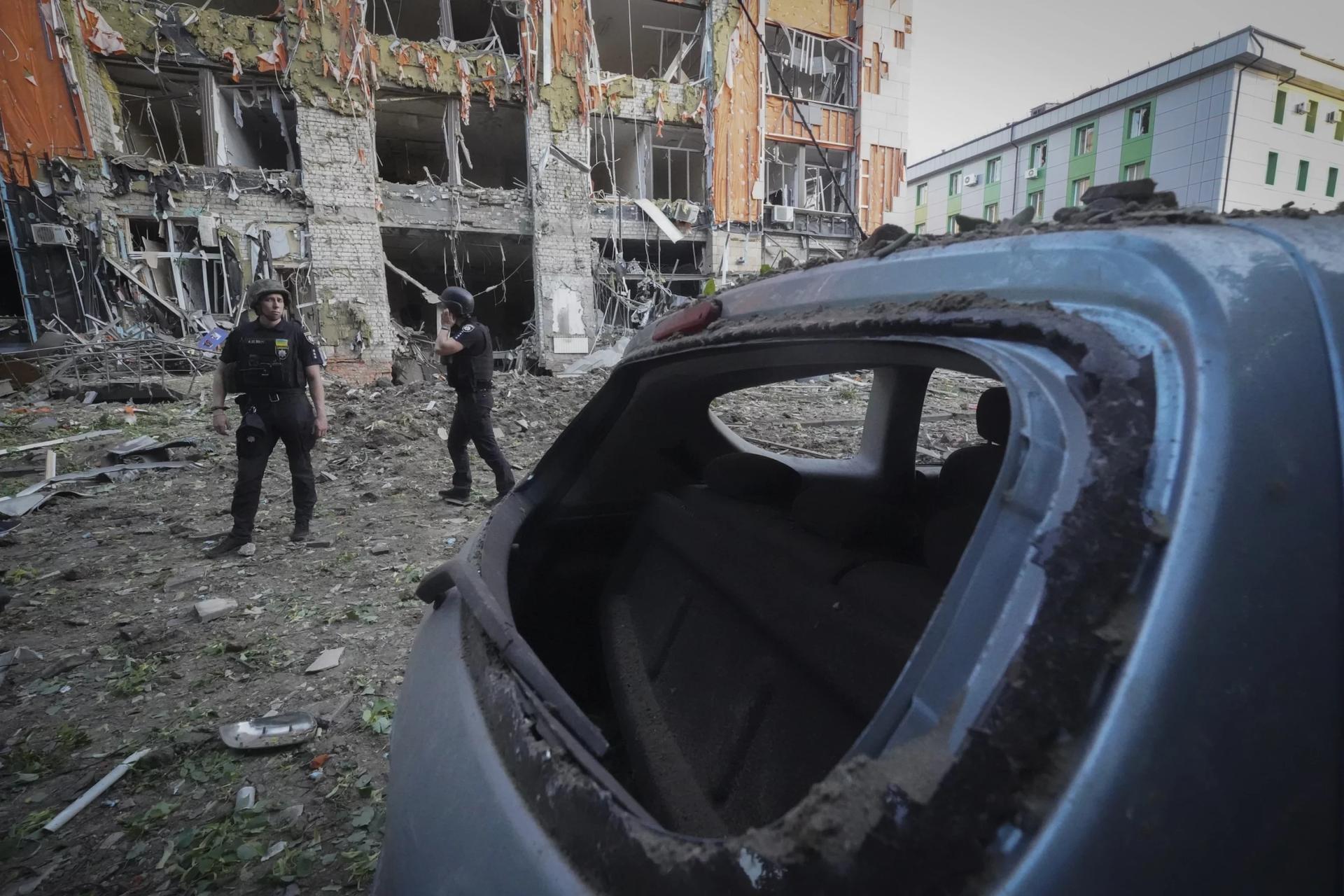A frontline of the war by Russia in Ukraine is the Kharkiv region in the northeast of the country, which has been hit by deadly Russian strikes.
Ukraine’s second largest city was a major target for Russian forces in the eastern Ukraine campaign during the 2022 invasion. It is less than 20 miles from the border with Russia and has remained under fire since the invasion began. Almost a quarter of the city was reported to have been destroyed by April 2024.
Bishop Pavlo Honcharuk of the Roman Catholic Diocese of Kharkiv-Zaporizhzhia recently visited the international headquarters of Aid to the Church in Need (ACN), where he said the air raid warning in his city goes off almost non-stop.
“We live from hour to hour. S-300 missiles fired from the Russian side hit Kharkiv in less than 39 seconds. Because it travels so fast, the missile lands first, and then comes the air raid warning. All those who live within 70 kilometers [45 miles] of the front are the first in the Russian line of fire. In Ukraine, however, there is no safe place. The attacks can happen anywhere,” he told ACN.
RELATED: Major Archbishop Shevchuk says Ukraine’s freedom is essential for religious freedom
“Here in Kharkiv, the air raid warning goes off almost non-stop. Also, every hour of the night. Many people still don’t dare go outdoors. There are lots of suicides because people don’t know what’s going to happen next,” the bishop continued.
“The schools and kindergartens are closed. Many children are learning in underground stations. I know of a teacher who every day goes to a nearby place where she has Wi-Fi and, from there, gives online lessons to her students, who are now scattered across 18 countries,” Honcharuk said.
The bishop said everything in Kharkiv has been destroyed and the people have no houses or apartments.
“A 73-year-old man came to us and had nothing with him. Fortunately, he was out when the rocket hit his house. But everything is gone. We bought him clothing,” he said.
Honcharuk told ACN a quarter of his diocese is occupied by the Russians, and the parishes in this area has no priests.
“Before the war in 2014 [when Russia occupied Ukraine’s eastern Donbas region], we had 70,000 believers in our diocese. Today there are only 2,500,” the bishop said.
RELATED: Top Vatican aide backs pope, warns of nuclear escalation in Ukraine
Russia began a newly charged campaign in the region in early May, but have failed to make much process in two months, although Ukraine has suffered many casualties.
Honcharuk told ACN military chaplains are essential, and they deal with the pastoral care of the men at the front and their families. He said his diocese has 46 military chaplains.
“The young man at the front is a lone fighter. He feels very alone because there are very few people that he can tell how it’s going for him,” the bishop said.
He claimed a soldier wouldn’t confide in a psychologist because he has no trust in him, nor in his family, because he would want to protect them.
“What these men have in their souls is a nightmare. That’s why a military chaplain is so important. He listens to what men have on their souls. You often don’t know what you should say; you are simply there,” Honcharuk said.
The bishop told ACN during such a conflict, Church leaders are, for the people, “accompanying them, carrying their burdens with them, praying with them, and serving them.”
“And seeking means to help them to overcome this difficult time. It’s not just about material help but also about psychological help. It‘s important that a person understands what is going on inside him so that he does not condemn himself, for with fear comes also aggression. That is normal in a war situation. Then you must speak about it,” Honcharuk said.
“We have few specialists and experts, and that is a problem. ACN has supported psychological formation for priests, religious and volunteers in relation to war wounds. That is so important, and we are very grateful for it,” he added.
“Our mission is to proclaim Christ and His word. Prayer is the greatest weapon. Many people ask: when will the war end? There is no answer. But we mustn’t stop praying,” he said.













